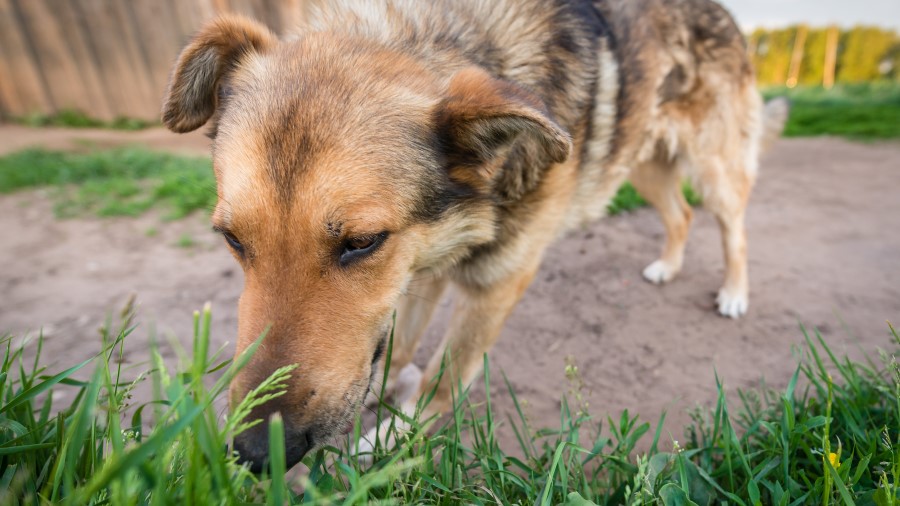Rat Poison & Pets
To most people, rats are regarded as pests. Rats can spread disease, eat our crops, leave droppings and make nests in our storage areas, and infest our homes.
Rat poison can be obtained in most hardware and grocery stores with relative ease. For this reason, it is vital to be fully aware of the risks rat poison can pose if accidentally ingested by a pet. You must keep any rat poisons well away from your pets at all times. You should also be aware of the signs of rat poisoning, particularly if your pet travels with you to places outside the home where bait may be left out. Rat poisons can be extremely harmful if ingested by your pet. The severity of harm caused to your pet will depend on a number of factors, including the specific active ingredient in the poison ingested and the amount of poison ingested compared to your pet’s weight.

What are the different types of rat poisons out there and which ones should I use?
As a pet owner, it would be ideal to avoid rodenticides altogether. However, if you intend to use a rat poison (or rodenticide), we encourage you to choose what is called an ‘anti-coagulant rodenticide’, over other types of rat poisons, as there are readily available and highly effective treatments available for the anti-coagulant rodenticides should your pet ingest them.
An anti-coagulant rodenticide contains, active ingredients such as: brodificoum, diphacinone, warfarin and , bromadoline.
Note: When purchasing any rat poison, you cannot rely on the product picture or colour of the product to determine the active ingredient/s. The only way to be 100% certain of the active ingredient/s is to check the ingredients list to establish whether the rodenticide you are purchasing. We also recommend keeping the product packaging. This will make it much quicker and easier for your vet to treat your pet, as different active ingredients require different treatments.
How will I know if my pet has accidentally ingested rat poison?
Different types of rat poisons will cause different symptoms when ingested.
The most common baits will cause one of three things:
- Internal bleeding
- Brain swelling
- Hypercalcemia (high calcium levels, which can lead to things like kidney failure).
The poisons that cause internal bleeding are known as anti-coagulant rodenticides. They do not produce signs of poisoning for a few days after the toxic dose has been consumed. If your pet has consumed an anti-coagulant rodenticide, you may notice symptoms such as weakness, pallor, blood in the urine or faeces, and difficulty breathing. Often bleeding will not be obvious externally.
What should I do if I think my pet has eaten rat poison?
If you suspect that your pet has eaten rat poison, you should seek veterinary advice immediately. Rat poisons can be fatal to your pet, and the sooner you seek treatment, the best chance your pet has of recovery. Find your nearest Greencross Vets clinic or contact one of our emergency animal hospitals.
What is the treatment for a pet who has consumed rat poison?
If you know your pet has recently ingested the poison and you seek immediate veterinary attention, your veterinarian is likely to induce vomiting to remove the majority of the poison. Your veterinarian will discuss with you if any further treatment or blood testing is required.
If there is evidence that your pet is already bleeding as a result of consuming the poison, blood testing will be needed to establish the severity of the poisoning. Blood transfusion may be required. This aims to stabilise your pet, allowing sufficient time for the antidote to become effective. Treatment is generally started as an injection followed by tablets. This medication may be required for several weeks depending on the rat bait.
At the end of your prescribed medication course, your veterinarian will schedule a repeat blood coagulation test, to ensure your pets blood clotting is effective. This result determines if treatment is complete or if further medication is required.
It is very important to return for the recheck on schedule. Waiting an extra day or two will allow internal bleeding to recur.
What Happens If My Dog Eats Rat Poison?
Firstly, if you suspect that your dog has eaten rat poison, you should seek veterinary advice immediately.
Find your nearest Greencross Vets clinic or contact one of our emergency animal hospitals.
Rat baits work by preventing blood from clotting, which leads to bleeding. Unfortunately when other animals consume the bait, the same thing happens.
Blood clotting factors are generated in the liver. Several of these are Vitamin K1 dependent to become activefor their action. When an injury to a blood vessel occurs, platelets and clotting factors (sometimes referred to as coagulation factors) help repair the blood vessel to stop the bleeding.
What if my pet eats a poisoned rat?
We are commonly asked about the risk to a cat or dog who eats a rodent that has been poisoned with an anti-coagulant rodenticide. The rodent might have already died or simply not have died yet, given that several days are required to feel the effect of these poisons.
A greedy rat can eat enough poison to kill 20 rats before it starts to feel sick and if a dog or cat eats the rat, the poison is transferred. The good news is that most rats are not this greedy and do not overindulge this much. The usual patient for secondary poisoning is a pet (or predator) that depends heavily on rats for food (a barn cat, for example). If a long-acting anti-coagulant rodenticide is used and the pet eats multiple rodents, this would be of concern.
Rat Poison & Pets FAQs
How much rat poison is lethal to dogs?
Any rat poison your dog ingests can prove to be life threatening or cause serious health problems. If you are concerned your dog has ingested rat poison, you should call your local vet or animal emergency hospital immediately.
How can you tell if a dog ate rat poison?
If your pet ingests rat poison, their symptoms may be difficult to detect. There may be internal or external bleeding, but it is not always obvious. Pet owners may notice that their pet is weak, has pale gums, there is blood in their urine or stool or their nose is bleeding. If you notice bleeding in more than one body location, this is often a sign that there is a problem with blood coagulation and appropriate testing and treatment can be started.
How much rat poison is lethal to cats?
If your cat ingests rat poison, it could prove to be lethal to them. If you see your cat eating rat poison, or notice symptoms in your cat suggesting they ingested rat poison, you should call your local vet and visit them immediately.
What to do if your dog eats rat poison
If you believe your dog has eaten rat poison, you should immediately try to remove any traces by gently wiping out their mouth with a damp cloth, rising between each wipe. After this, you should see if you can find the rat poison packaging to learn more about what your dog has ingested, so you can inform your vet. Following this, you should call your local vet or animal emergency hospital to organise an appointment for your dog to be seen and treated.
Will rat poison kill dogs?
Rat poison can kill dogs if they eat it and are left untreated. Rat poison can cause internal and external bleeding in your dog, which can be fatal. If you suspect your pet has ingested rat poison, contact your vet immediately.

 Greencross Vets
Greencross Vets 






